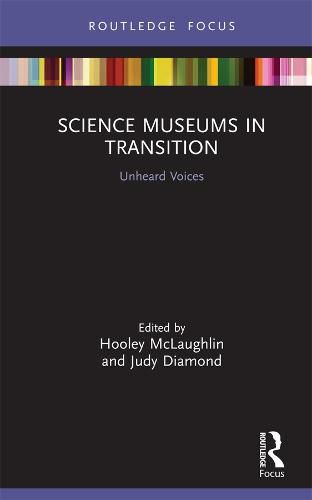Readings Newsletter
Become a Readings Member to make your shopping experience even easier.
Sign in or sign up for free!
You’re not far away from qualifying for FREE standard shipping within Australia
You’ve qualified for FREE standard shipping within Australia
The cart is loading…






Science Museums in Transition: Unheard Voices considers how museums can adapt their exhibits, programs, and organizational structures to the diversity of ideas, people, and cultures that speak to modern science.
This collection contains individual expressions by museum insiders addressing a range of particular perspectives - Native American, African American, Latinx, Islamic, Israeli, Danish, white North American. These reflections provide guidance to the museum community as to how their institutions can become more thoughtful, more welcoming to diverse audiences, and more cognizant of the ways that different people incorporate science into their daily lives. As a whole, the book emphasizes the need for museums to engage in dialogue with their visitors - not merely to present them with information - and to offer the opportunities to share experiences, exchange perspectives, and thereby advance science learning through a dynamic and collective process.
Science Museums in Transition is intended to further discussion on how museums address the political and social ramifications of science and, as such, should be of great interest to academics, researchers and postgraduate students working in the fields of museum studies, science, anthropology, education and history. It should also be essential reading for museum professionals around the globe.
$9.00 standard shipping within Australia
FREE standard shipping within Australia for orders over $100.00
Express & International shipping calculated at checkout
Science Museums in Transition: Unheard Voices considers how museums can adapt their exhibits, programs, and organizational structures to the diversity of ideas, people, and cultures that speak to modern science.
This collection contains individual expressions by museum insiders addressing a range of particular perspectives - Native American, African American, Latinx, Islamic, Israeli, Danish, white North American. These reflections provide guidance to the museum community as to how their institutions can become more thoughtful, more welcoming to diverse audiences, and more cognizant of the ways that different people incorporate science into their daily lives. As a whole, the book emphasizes the need for museums to engage in dialogue with their visitors - not merely to present them with information - and to offer the opportunities to share experiences, exchange perspectives, and thereby advance science learning through a dynamic and collective process.
Science Museums in Transition is intended to further discussion on how museums address the political and social ramifications of science and, as such, should be of great interest to academics, researchers and postgraduate students working in the fields of museum studies, science, anthropology, education and history. It should also be essential reading for museum professionals around the globe.